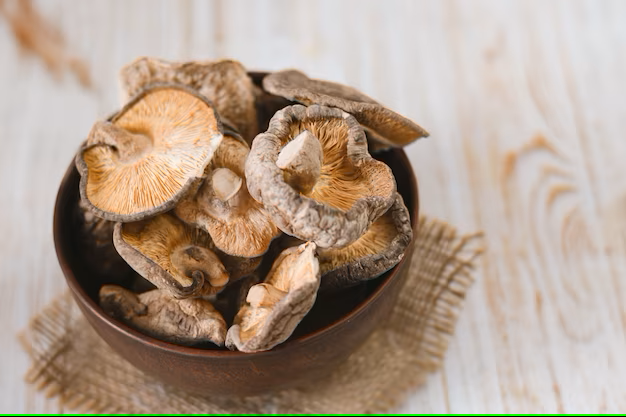Exploring Ganoderma: Nature’s Treasure for Health and Wellness
Ganoderma, often referred to as the “mushroom of immortality” or “lingzhi,” is a genus of mushrooms known for its potential health benefits and therapeutic properties. With a history deeply rooted in traditional medicine, Ganoderma has captured the attention of modern science for its potential to treat a range of diseases. In this blog post, we’ll delve into the world of Ganoderma, understanding what it is and exploring the diseases that are treated with this remarkable natural resource.
Understanding Ganoderma: A Gift from Nature:
Ganoderma is a type of mushroom that belongs to the Polyporaceae family. It is characterized by its distinctive woody texture, glossy appearance, and unique spore-bearing structures on the underside. Ganoderma mushrooms have been used for centuries in traditional Chinese medicine, where they are believed to promote longevity, vitality, and overall well-being.
Bioactive Compounds and Therapeutic Potential:
Ganoderma mushrooms are prized for their bioactive compounds, which contribute to their potential therapeutic effects. Some of the key components include polysaccharides, triterpenes, and peptides. These compounds are thought to possess anti-inflammatory, antioxidant, immune-modulating, and anti-cancer properties.
Diseases Treated with Ganoderma:
- Immune System Support: Ganoderma is renowned for its ability to enhance immune function. It is often used to support the immune system’s defense against infections, autoimmune disorders, and allergies.
- Cancer: Research suggests that Ganoderma may have anti-tumor effects. The triterpenes and polysaccharides found in Ganoderma have been investigated for their potential to inhibit the growth of cancer cells and enhance the body’s natural defense mechanisms against cancer.
- Cardiovascular Health: Ganoderma may contribute to cardiovascular health by helping to lower blood pressure, reduce cholesterol levels, and improve blood circulation.
- Liver Health: Traditional medicine often employs Ganoderma to support liver health. Its potential to enhance liver function and protect against liver damage has piqued scientific interest.
- Diabetes: Some studies suggest that Ganoderma may help regulate blood sugar levels and improve insulin sensitivity, making it potentially beneficial for individuals with diabetes.
- Neurological Disorders: Ganoderma’s antioxidant and anti-inflammatory properties may offer neuroprotective effects, potentially benefiting individuals with conditions like Alzheimer’s disease and Parkinson’s disease.
- Respiratory Health: Ganoderma is sometimes used to support respiratory health, potentially alleviating symptoms of asthma and bronchitis.
Mushrooms: Unveiling Their Potential as an Anti-Cancer Superfood
Caveats and Considerations:
While Ganoderma shows promise in various areas, it’s important to approach its use with caution. The efficacy and safety of Ganoderma supplements can vary, and interactions with medications may occur. Consulting a healthcare professional before incorporating Ganoderma into your health regimen is advised.
Ganoderma, with its rich history and potential therapeutic properties, is a captivating subject of scientific research and traditional wisdom. While it holds promise in treating several diseases, its use should be guided by reliable information and expert advice. Embracing a holistic approach to health, including a balanced diet, regular exercise, and consultation with healthcare professionals, remains essential in promoting overall well-being.
As our understanding of Ganoderma continues to evolve, it’s exciting to witness the bridge between traditional knowledge and modern research, unveiling the potential of this natural treasure for the betterment of human health.













